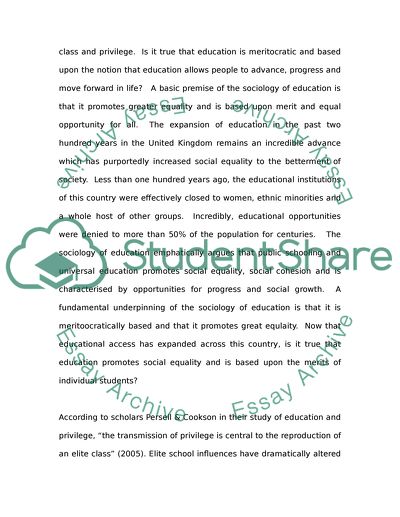Cite this document
(Factors Influencing Childs Education Essay Example | Topics and Well Written Essays - 1250 words, n.d.)
Factors Influencing Childs Education Essay Example | Topics and Well Written Essays - 1250 words. https://studentshare.org/education/1557215-a-childs-education-is-increasingly-dependent-on-the-wealth-and-wishes-of-their-parents-rather-than-the-ability-of-pupils-themselves-discuss
Factors Influencing Childs Education Essay Example | Topics and Well Written Essays - 1250 words. https://studentshare.org/education/1557215-a-childs-education-is-increasingly-dependent-on-the-wealth-and-wishes-of-their-parents-rather-than-the-ability-of-pupils-themselves-discuss
(Factors Influencing Childs Education Essay Example | Topics and Well Written Essays - 1250 Words)
Factors Influencing Childs Education Essay Example | Topics and Well Written Essays - 1250 Words. https://studentshare.org/education/1557215-a-childs-education-is-increasingly-dependent-on-the-wealth-and-wishes-of-their-parents-rather-than-the-ability-of-pupils-themselves-discuss.
Factors Influencing Childs Education Essay Example | Topics and Well Written Essays - 1250 Words. https://studentshare.org/education/1557215-a-childs-education-is-increasingly-dependent-on-the-wealth-and-wishes-of-their-parents-rather-than-the-ability-of-pupils-themselves-discuss.
“Factors Influencing Childs Education Essay Example | Topics and Well Written Essays - 1250 Words”. https://studentshare.org/education/1557215-a-childs-education-is-increasingly-dependent-on-the-wealth-and-wishes-of-their-parents-rather-than-the-ability-of-pupils-themselves-discuss.


